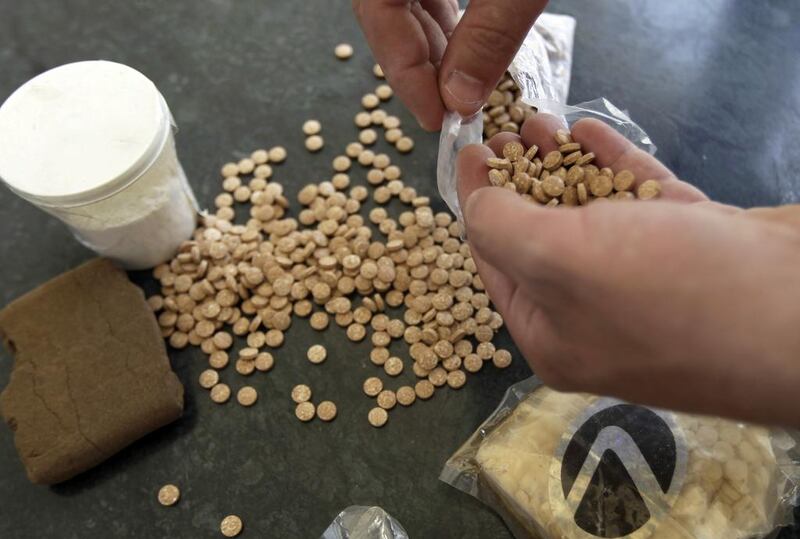Lebanese police made a major drug seizure, confiscating more than 800,000 pills of the amphetamine-type stimulant Captagon, worth over $12 million (Dh 44m) with the help of Saudi authorities.
Police stopped a refrigerated truck containing 142 kilogrammes of the illicit drug on April 9, according to a statement on Saturday.
Captagon is one of the most commonly used drugs in the Syrian war, where fighters who take it say it helps them stay awake for days and that it numbs their senses, allowing them to kill with abandon.
The bust came after Saudi Arabia's Directorate of Narcotics Control tipped off Lebanese authorities on a plan to smuggle a large Captagon shipment to an unidentified "Arab country" by land, it said.
Lebanon has previously stopped several shipments of Captagon to Gulf countries, including Saudi Arabia.
Captagon is classified by the UN Office on Drugs and Crime as an "amphetamine-type stimulant" and usually blends amphetamines, caffeine and other substances.
Iraq, Jordan, Lebanon and Syria are usually assumed to be transit or production territories for illicit Captagon, according to the European Monitoring Centre for Drugs and Drug Addiction.
Lebanese authorities have been clamping down on exports of the psycho-stimulant, which is produced in swathes of Syrian and Lebanese territory where government oversight is lax or non-existent.
In one of the country's largest busts, Lebanon arrested a Saudi prince and four other Saudi nationals in October 2015 for attempting to smuggle out nearly two tonnes of Captagon via Beirut's airport.
The so-called "Captagon Prince" was sentenced on March 27 to 10 years in prison.
A 2017 report by the Global Initiative Against Transnational Organized Crime on Captagon smuggling and production in Lebanon found a rise in “pop-up” production facilities in the country and a spike in seizures. But, the report found, the decline in busts from 2013 may be a sign that producers and smugglers are improving tactics to avoid the authorities rather than a decline in production and smuggling from Lebanon.
With Lebanese security agencies focused on security and cross border terrorism, resources dedicated to fighting the narcotics trade are limited despite a long history of hashish and opium production.






